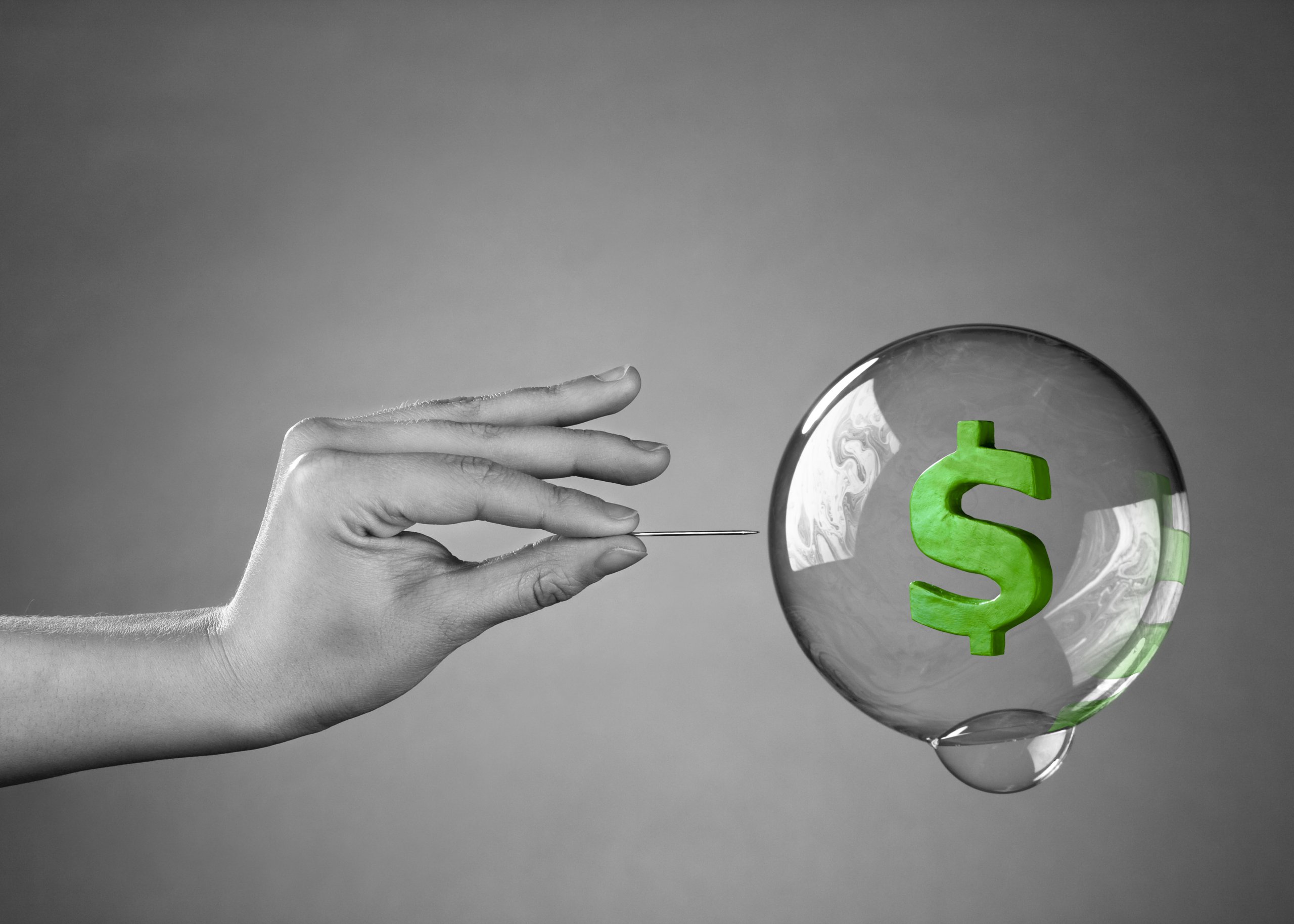Sometimes we can use the word “bubble” for free to refer to the high price of an asset. Still, a bubble of an investment, a market, or an economic cycle, is not only related to a high price. Even the high price is relative, and you have to compare it with the value.
You can invest in an action or an asset, which shoots 1000% in two days, and that does not mean that said asset can give rise to a bubble, and it can still be very cheap. It would simply be necessary to see if the fundamentals justify its spectacular growth.
What should we analyze to know if an asset is a bubble?

First, the bubble concept comes from “something that is formed with air or gas and tends to rise.” When we apply this in the financial and active markets, the reasoning is simple. A bubble is when you sell air, and investors buy it, raising the asset’s price even though its value no longer corresponds to the high cost.
Said more technically and financially, a bubble would be a rapid and unsteady escalation of prices of an asset, when told the increase in the costs of a said the fundamentals of the purchase do not justify help, is only created by an exuberant behavior of the market or because of the irrationality of the investors.
When is the bubble punctured?
The bubble is deflated at a time when no more investors are willing to buy at such a high price, so there is a massive wave of sales, causing the bubble to deflate.
Sometimes, prices fall and remain in the ground until the fundamentals of the asset improve. Investors return to trust in this asset, or if a said asset (if we speak of a stock company) begins to strengthen its fundamentals again, becoming more attractive the purchase by new investors causing the rise in the price yet, but this time being justified by the improvement in fundamentals.

On other occasions, the massive wave of sales reveals a failed business. It ends up causing the company to close because it is not a profitable business under any circumstances or losing perpetual credibility on the part of investors.
Even clearer is when you invest in something that has no value at all.
It is straightforward not to fall into a bubble in stocks because there is an underlying business after the valuation of stocks, some fundamentals that even tell us if we are buying something cheap or expensive ( PER of the company ).
The fact that we are buying an action above its intrinsic value does not mean that we will lose money with the investment. Often the opposite happens if we are in a bullish cycle.
Why do the bubbles hurt the global economy so much?
The first recorded speculative bubble occurred in Holland from 1634 to 1637. It was known as the tulip bubble or Tulipomania.
Any rational mind to say that a flower could collapse the whole economy of the Netherlands may sound crazy, but that was what happened, in the same way, that the housing bubble in 2007-2008 caused a situation of unemployment and social damage similar to the crash of ’29.

In what ways can the money be made in a bubble?
It is the part that probably interests us the most. There are two ways to make money in a bubble, especially if we know that there is a bubble.
In the first place, nothing happens to participate in a bubble, as long as we are clear that we will benefit temporarily and that we will collect benefits and keep economic provisions by cycles to make sure we do not put all our capital at risk.
Stages of a bubble
These stages are one of the several recurrent economic cycles. Here, I am using it as a typical credit cycle.
- Displacement – It occurs when a new paradigm enamored investors. It happens when the federal fund rate decreases that is from 6.5 to 1.2.
- Euphoria – Asset prices increase during this phase.
- Panic – In this stage, the prices of assets’ costs reverse course and descend as fast as they had increased.
- Boom – In this phase, prices increase slowly, but maximum participants enter the market fast.
- Profit-taking – There is a point of bursting that starts selling positions and gaining profits.
 About Complete Controller® – America’s Bookkeeping Experts Complete Controller is the Nation’s Leader in virtual bookkeeping, providing service to businesses and households alike. Utilizing Complete Controller’s technology, clients gain access to a cloud-hosted desktop where their entire team and tax accountant may access the QuickBooks™️ file, critical financial documents, and back-office tools in an efficient and secure environment. Complete Controller’s team of certified US-based accounting professionals provide bookkeeping, record storage, performance reporting, and controller services including training, cash-flow management, budgeting and forecasting, process and controls advisement, and bill-pay. With flat-rate service plans, Complete Controller is the most cost-effective expert accounting solution for business, family-office, trusts, and households of any size or complexity.
About Complete Controller® – America’s Bookkeeping Experts Complete Controller is the Nation’s Leader in virtual bookkeeping, providing service to businesses and households alike. Utilizing Complete Controller’s technology, clients gain access to a cloud-hosted desktop where their entire team and tax accountant may access the QuickBooks™️ file, critical financial documents, and back-office tools in an efficient and secure environment. Complete Controller’s team of certified US-based accounting professionals provide bookkeeping, record storage, performance reporting, and controller services including training, cash-flow management, budgeting and forecasting, process and controls advisement, and bill-pay. With flat-rate service plans, Complete Controller is the most cost-effective expert accounting solution for business, family-office, trusts, and households of any size or complexity.




